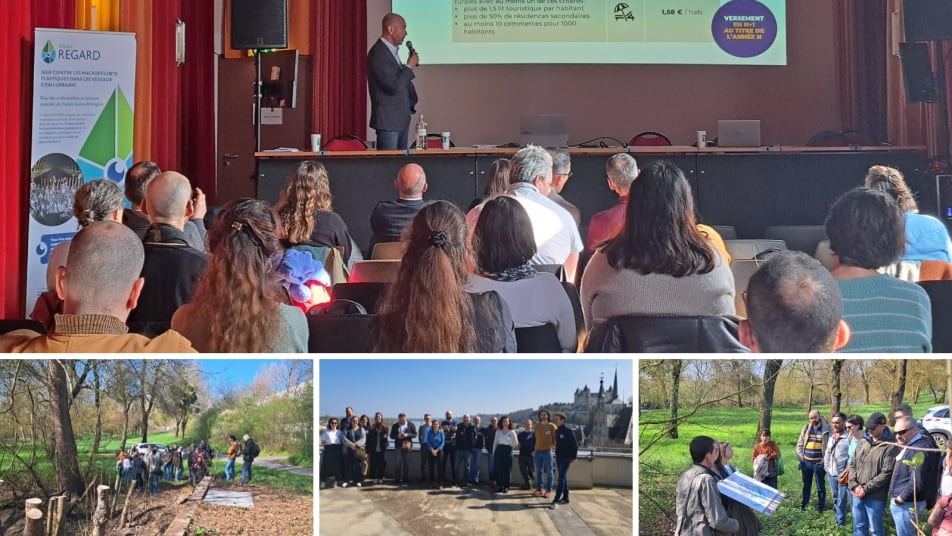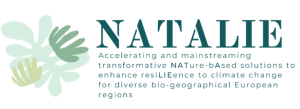World Environment Day 2025: OiEau working for water and the planet

Every 5 June, World Environment Day reminds us of the importance of preserving our planet. Once again this year, water is at the heart of environmental issues: a vital resource, it is threatened by climate change, pollution and overexploitation.
In this context, the International Office for Water (OiEau) plays an essential role thanks to its four complementary areas of expertise.
Focus on its concrete actions for a more sustainable future.
Four complementary areas of expertise
Recognised as a public utility since 1991 and holder of French ‘Environmental Protection’ accreditation since 2022, OiEau is able to respond to changing needs, both today and tomorrow, thanks to its four complementary areas of expertise: biodiversity, protection and restoration of environments, adaptation to climate change, etc.
Technical and institutional support & Cooperation
Water knows no administrative boundaries: it flows, evaporates, returns and crosses territories. OiEau supports countries and local authorities in the comprehensive, transboundary and sustainable integrated management of water resources (IWRM) at the watershed level.
Training engineering and skills development
Water professionals are the guardians of this resource. Every year, OiEau trains thousands of agents, technicians and managers around the world in practical sessions on the operation of wastewater treatment plants, drinking water networks and sludge management, with modules adapted to local realities, on its 45,000 m² of educational platforms or remotely.
Data and information systems
Measuring for better management: OiEau develops water information systems (WIS) and data platforms to improve about water and facilitate public decision-making. Disseminating knowledge is also part of its activities, with the production of key figures and the drafting of summaries.
Network coordination
Water is a shared resource: its management requires consultation between all stakeholders and shared governance. OiEau therefore facilitates dialogue between states, local authorities, users, NGOs and institutions.
Actions to reduce the presence of plastic in the environment
This year, the theme highlighted during Environment Day is ‘Combating plastic pollution’.
This pollution, often invisible to the naked eye but contaminating all aquatic environments, poses a major threat to biodiversity, human health and water resources.
While much of it ends up in the oceans, it often starts in our rivers, sewers and cities, with waste that is poorly collected or abandoned in the environment (bags, packaging, bottles, cigarette butts, etc.), industrial and urban discharges, particularly via wastewater, or microplastics from synthetic clothing, tyres and cosmetics.
The fight against plastic pollution has become an environmental, health and social issue. It requires collective action at all levels: citizens, businesses, local authorities and governments.
Here are some examples of OiEau's actions to combat plastics in the environment.
A handbook on the transfer of waste and plastics into aquatic environments

Written as part of the activities of the International Network of Basin Organisations (INBO), which brings together 192 members in 88 countries and whose permanent technical secretariat is provided by OiEau, this handbook aims to provide practical advice on the management and control of waste and plastic transfer in aquatic environments, based on examples of achievements in different territories and national or transboundary river basins around the world.
A network to combat macro-waste from sewage systems

Funded by the Loire-Bretagne Water Agency and co-run by Cedre, the REGARD network aims to encourage innovation, exchange experiences and promote best practices for combating plastic macro-waste from sewerage systems among services responsible for stormwater, sanitation and urban ecology in local authorities, and natural space managers.
Waste collection on the banks of the Oyapock River

As part of the BIO-PLATEAUX cooperation project (Promoting Cross-Border Coordination for Water Management), an awareness-raising event on waste management was organised for children on World Water Day. Around a hundred young people from both sides of the Oyapock River, in French Guiana and Brazil, came together for a large mayouri (a gathering of people to accomplish a task more quickly) to collect waste from the riverbanks, followed by an analysis of the results and an exchange of experiences.
On this World Environment Day, OiEau reaffirms its commitment to placing water at the heart of sustainable development policies, drawing on science, training, cooperation and innovation.
Because protecting water means protecting life.




